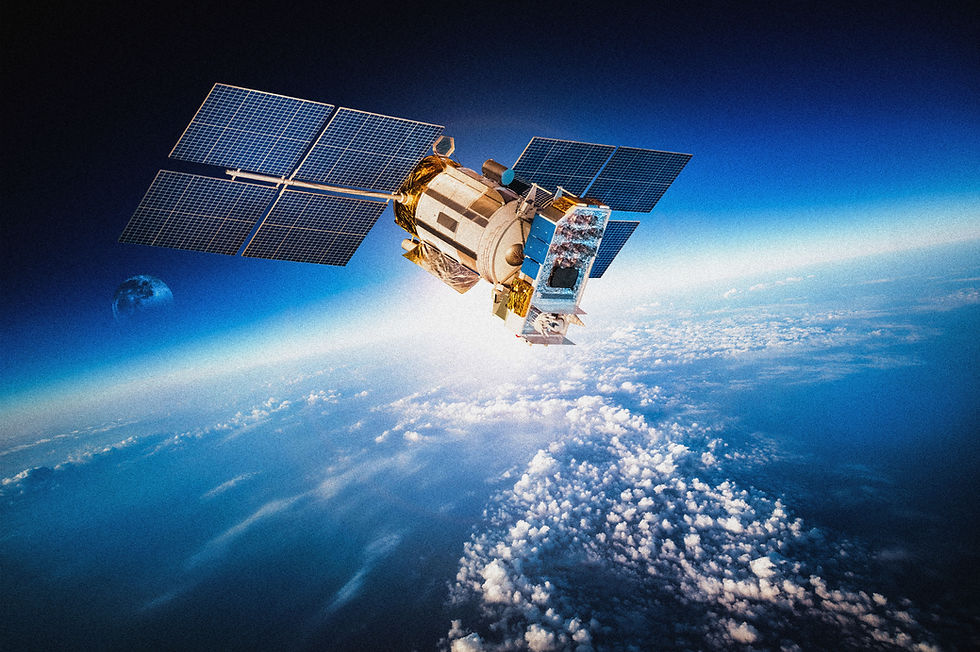Seas and oceans: blue is the new gold
- Alessandro Consonni (Italy), Policy Analyst

- Oct 27, 2022
- 3 min read

The world is covered by more than 70 percent water therefore seas and oceans are the real drivers for our future. Although seas have been perceived, throughout history, as symptomatic factors of the distance between communities, there has been a significant change of course in recent years which is leading to a greater consideration of their value. They represent the hope of being able to satisfy some of mankind’s most important needs, including the mounting demand for food and energy. Sure enough, water is a part of a larger socioeconomic and political system where addressing one means addressing all.
The 1982 United Nations Convention on the Law of the Sea (UNCLOS) dedicates the entire Part XII - made of more than 40 articles - to the protection and preservation of the marine environment. In particular, Section II lays down clear rules on global and regional cooperation. However, the Convention outlines just framework legislation, leaving specific regulatory provisions to the agreements dealing exclusively with the topic. Among the most noteworthy agreements, the 1954 International Convention for the Prevention of Pollution of the Sea by Oil, the 1972 London Convention, and the 1973 International Convention for the Prevention of Pollution from Ships (MARPOL) stand out.
In this day and age, with the big tech companies breaking new ground, cutting-edge innovations allow the exploitation of the oceans with methods, timing, and intensity unimaginable just a couple of years ago. Having said that, unfortunately, the wild “blue gold” rush of so many governments shall lead to a risk of “ocean grabbing”. Just to put it more simply, what happened with the similar phenomenon of “land grabbing” - above all in Africa - threatens to repeat itself on the high seas where the international law of the seas appears powerless. Evidence for this is provided by the marine renewable energy (MRE) industry which is a strategic as well as a crucial area with a thorny brain-teaser legal framework. It will deserve closer attention and will take on international importance since the presence of energy sources at sea portrays some of the oldest and some of the most recent challenges in the international law of the sea.
Even if the UNCLOS leaves no doubt about the allocation of jurisdiction on energy installations in the territorial sea, continental shelf, and exclusive economic zone (artificial islands, installations, and structures for the purposes provided for in Article 56 and other economic purposes included) the situation gets more complicated as one gradually moves from the shore and reaches the high seas and the deep seabed area. The provisions enshrined in the UNCLOS, when it comes to energy installations on the high seas, opt for the first-come-first-served basis as a ground rule to settle disputes which is unacceptable if we look at the state-of-the-art technology. In the same way is shocking that the relevant legislation on the pipelines linking the MRE with the mainland - and consequently the final consumer - is still the outdated 1884 Paris Convention for the Protection of Submarine Telegraph Cables, above all considering that today we use pipelines completely different from the unobtrusive telegraph cables hidden in the sand.
Several problems arise from the unclear definitions provided by the legislator. A good illustration of this is the notion of “sedentary species”, for coastal State sovereign rights and jurisdiction, under UNCLOS Article 77. What happened in the dispute concerning the exclusive sovereign rights over snow crabs, between the EU - Lithuanian/Latvian fishing vessels - and Norway in the continental shelf/seabed of the Svalbard Archipelago is emblematic. When projections of future profit soar, disputes arise and that is the reason why there is an urgent need for cooperation at the supranational level.
A good illustration of closer collaboration to face, as a single population, common threats is the case of the Western Mediterranean Intergovernmental Geopolitical Forum (commonly referred to as 5+5), bringing together countries of the two shores of the Mediterranean, namely Algeria, France, Italy, Libya, Malta, Mauritania, Morocco, Portugal, Spain, and Tunisia. The International Community has many irons in the fire about the sustainable use of the oceans but one of the toughest tasks to address will be to strike the right balance between promotion and regulation because there is no doubt that the development process of emerging technologies is a direct consequence of the drafted legal framework which, right now, is marked by areas giving rise to recurring misunderstandings.


